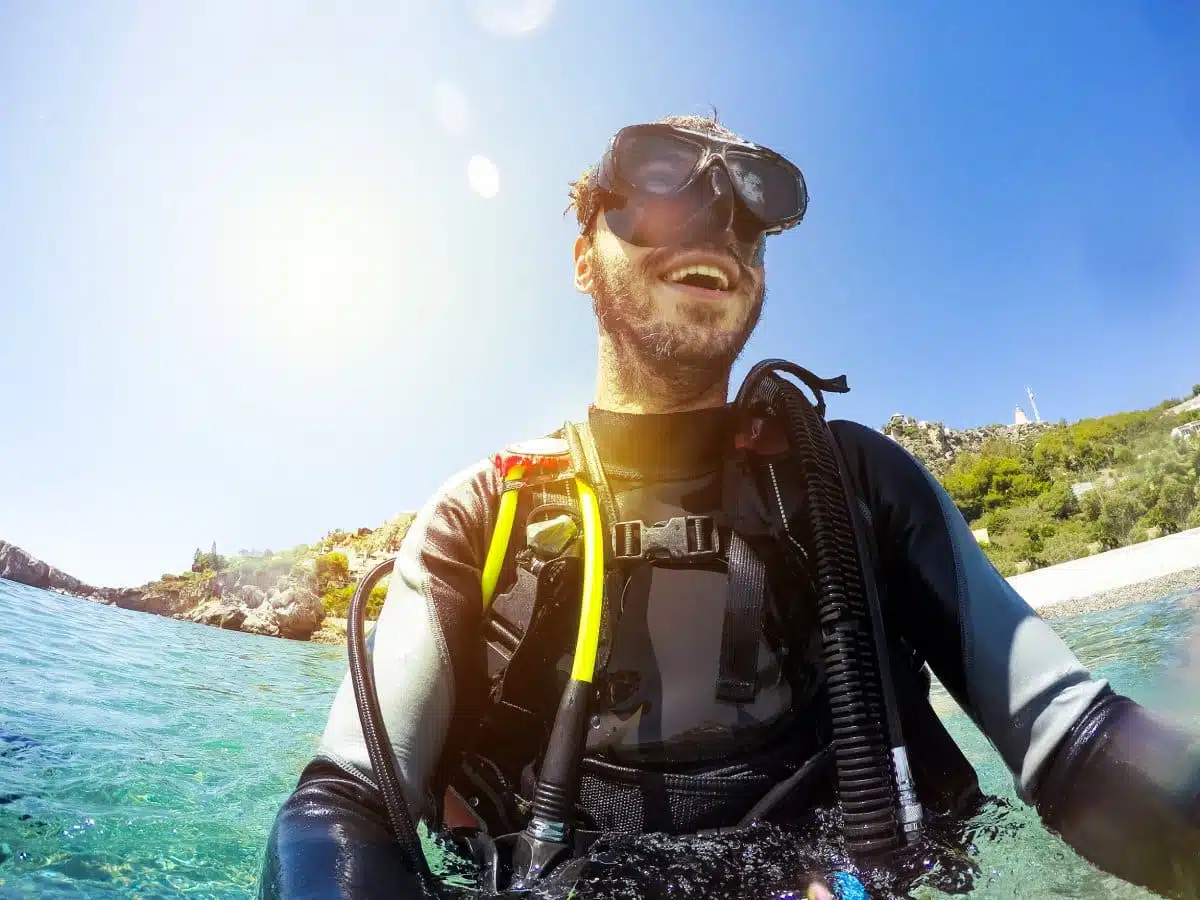The underwater world offers an otherworldly beauty that is unmatched. Snorkeling and diving provide a unique opportunity to explore this aquatic wonderland, but they also come with the responsibility to protect and preserve marine ecosystems. The increasing popularity of these activities has raised concerns about their impact on marine life and habitats.
This guide aims to educate enthusiasts on how to engage in snorkeling and diving in a manner that respects and conserves the underwater environment. Covering a range of topics from coral reef conservation to wildlife interaction, each section offers detailed insights into responsible practices that ensure the sustainability of these precious ecosystems for future generations.
1. Understanding Marine Ecosystems
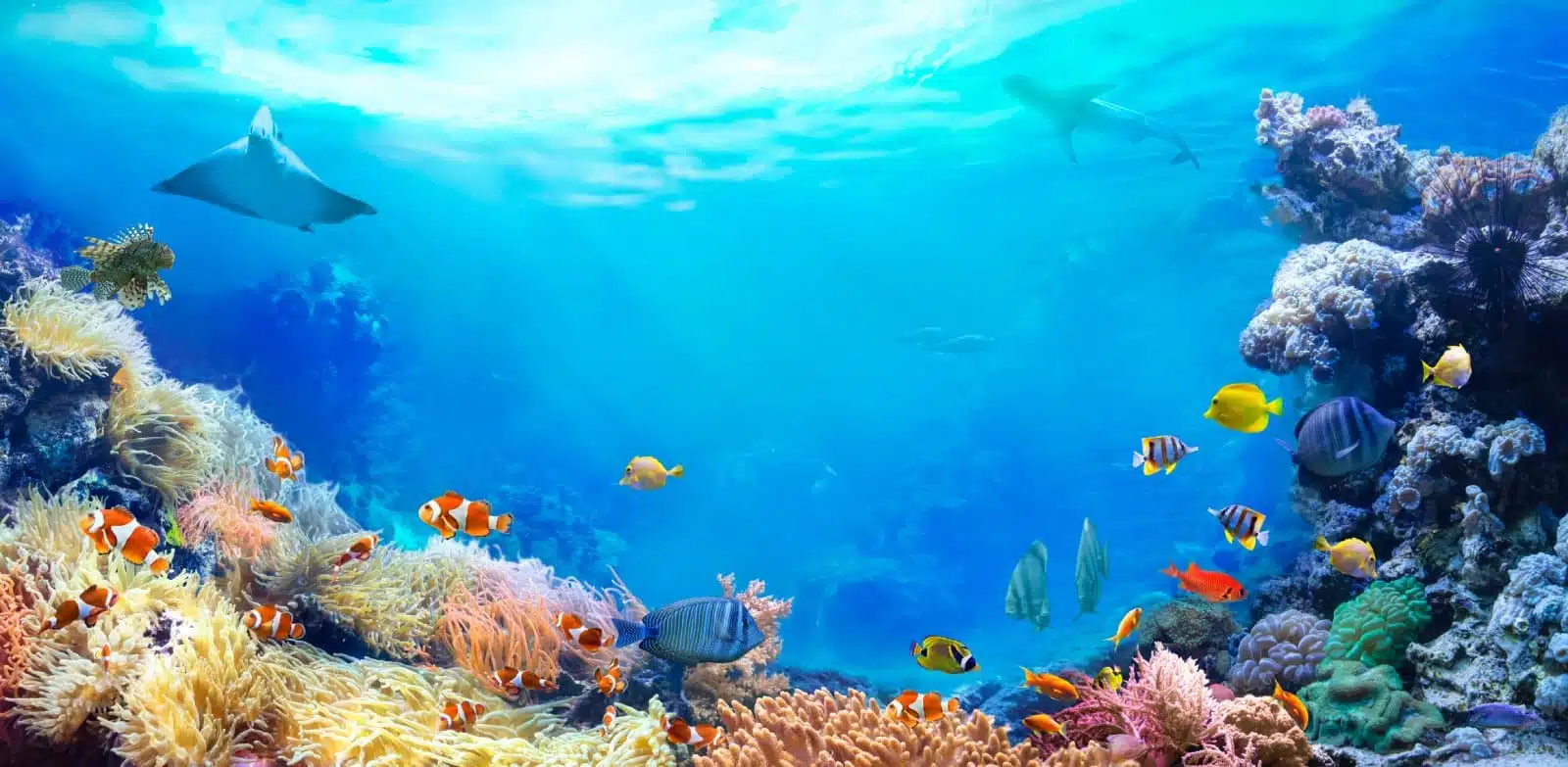
Image Credit: Shutterstock / silvae
Marine ecosystems are complex and fragile environments that play a crucial role in the health of our planet. They are biodiversity hotspots that provide critical habitats for a myriad of species, from microscopic plankton to the largest marine mammals. Coral reefs, often referred to as the “rainforests of the sea,” are particularly important, supporting an estimated 25% of all marine species. However, these ecosystems face threats from climate change, pollution, overfishing, and irresponsible tourism practices. Snorkelers and divers have a unique opportunity to witness these ecosystems’ beauty and complexity firsthand, which comes with a responsibility to minimize their impact.
Insider’s Tip: Before diving into these environments, educate yourself about the ecosystem you plan to visit. Understanding the role of different species and their current threats can enhance your appreciation and encourage more conscientious behavior.
2. Choosing Eco-Friendly Tour Operators
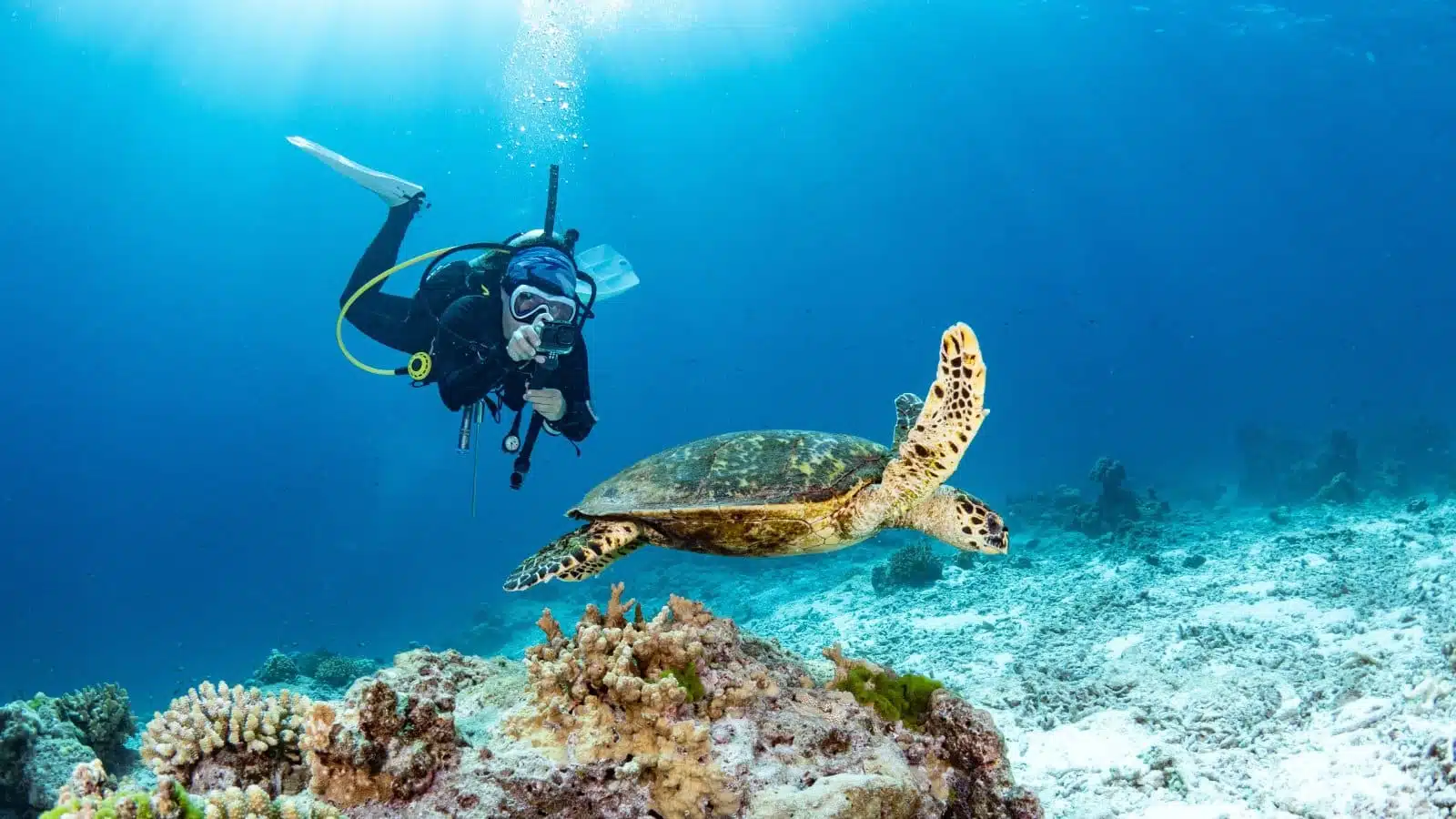
Image Credit: Shutterstock / Summer Paradive
The choice of tour operator can significantly impact the sustainability of snorkeling and diving activities. Eco-friendly operators prioritize the protection of marine environments in their practices, from limiting group sizes to reduce stress on ecosystems to providing thorough briefings on responsible behavior. They often contribute to conservation efforts and educate their clients on the importance of preserving marine life. Selecting these operators supports businesses that are committed to environmental stewardship and helps promote a culture of responsible tourism.
Insider’s Tip: Look for certifications or memberships in reputable conservation organizations as indicators of an operator’s commitment to eco-friendly practices. Don’t hesitate to ask operators about their sustainability policies and how they contribute to marine conservation.
3. Minimizing Physical Impact on Coral Reefs
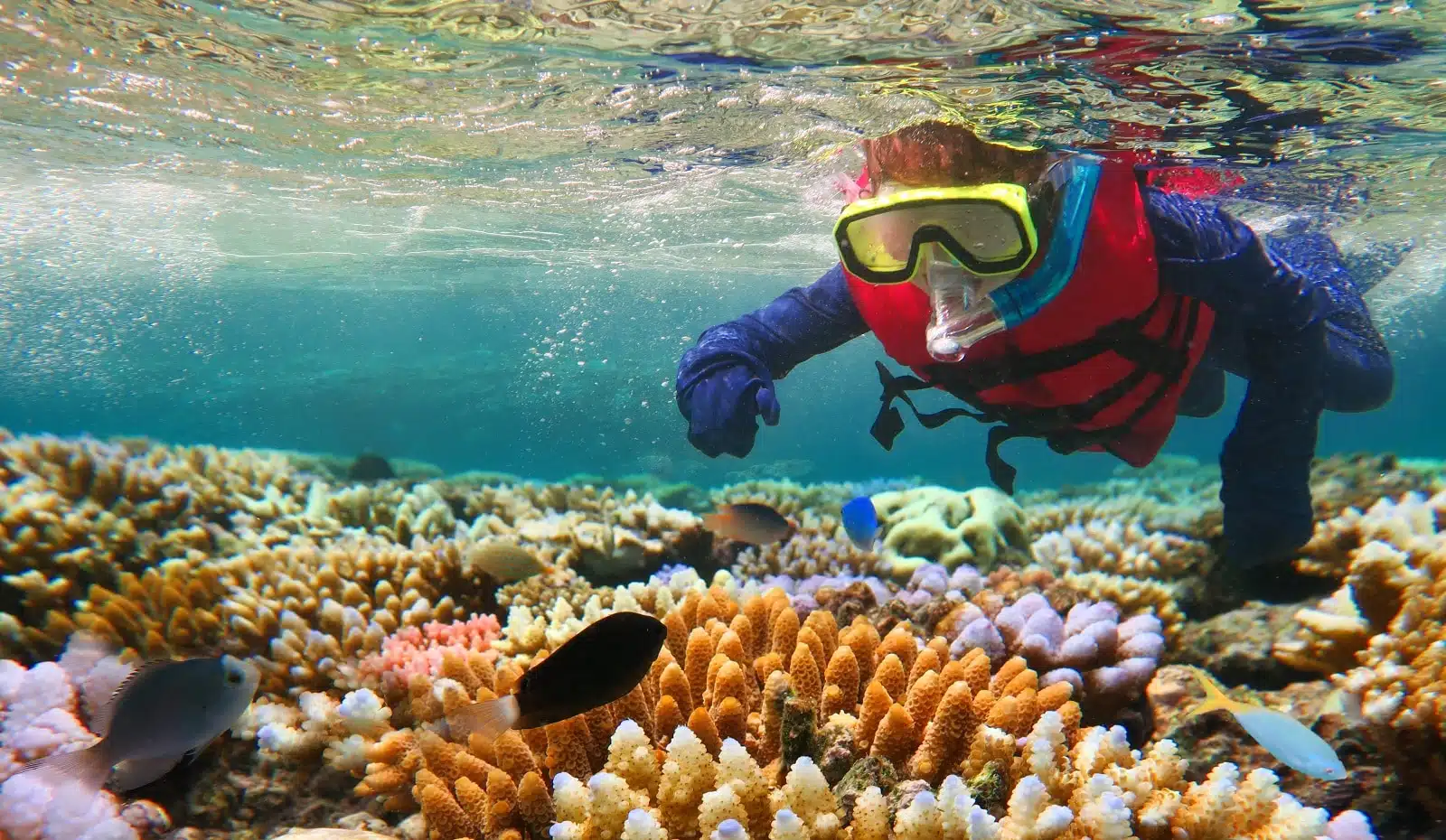
Image Credit: Shutterstock / ChameleonsEye
Coral reefs are delicate structures built by tiny coral polyps over thousands of years. They are easily damaged by physical contact, which can break the coral branches and harm the polyps. Snorkelers and divers must be vigilant about their buoyancy and spatial awareness to avoid touching or kicking the coral. Even small actions can have significant impacts, leading to coral death and degradation of reef ecosystems.
Insider’s Tip: Practice buoyancy control in open water or a swimming pool before your trip to ensure you can float effortlessly above the reef without touching it. Always be aware of your fins to avoid accidental contact with the coral.
4. Respecting Marine Wildlife
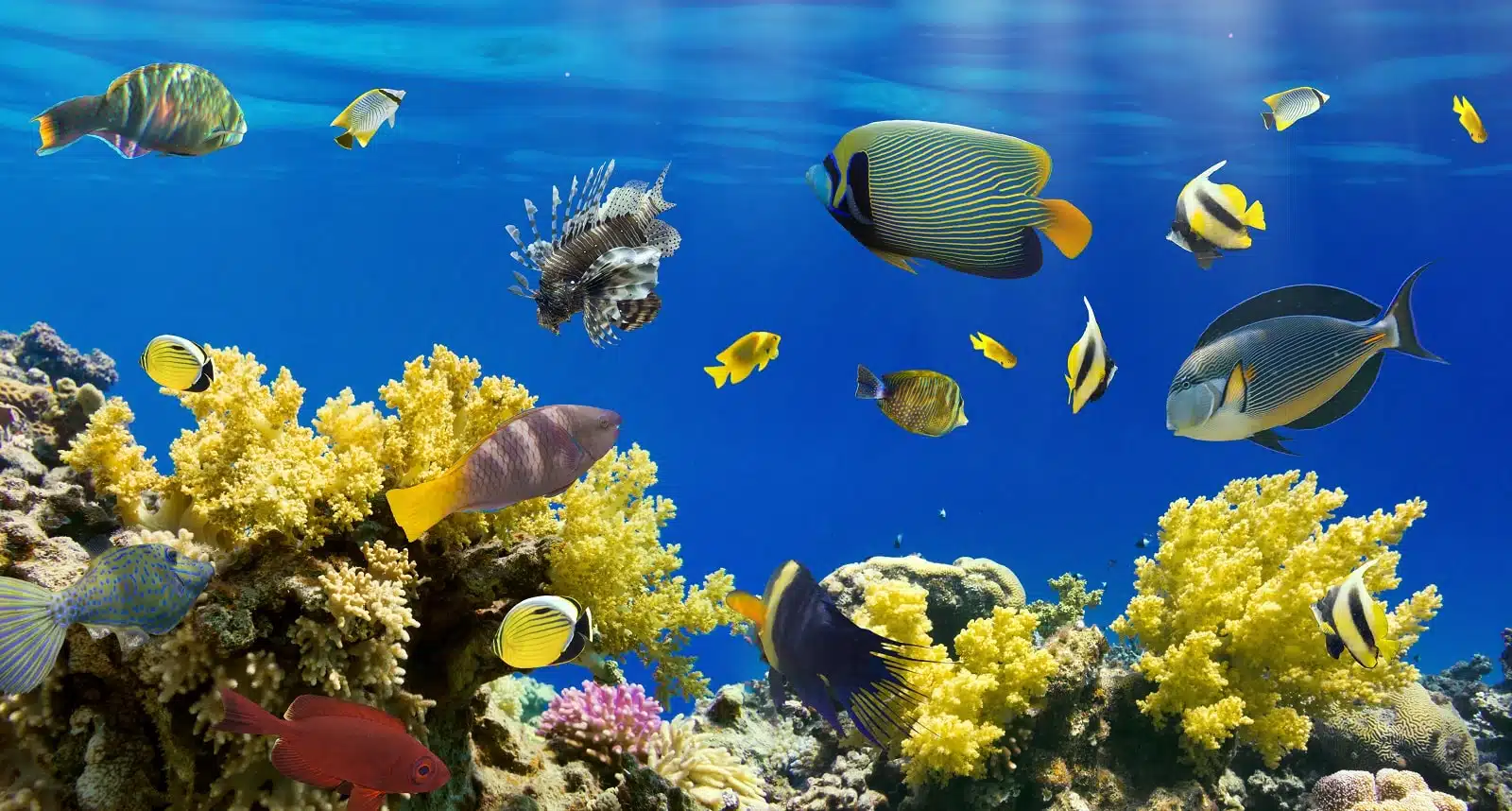
Image Credit: Shutterstock / Lotus_studio
Encounters with marine wildlife are among the most thrilling aspects of snorkeling and diving, but they must be approached with respect. Chasing, touching, or feeding marine animals can disrupt their natural behaviors, cause stress, and even lead to physical harm. Responsible snorkelers and divers maintain a safe distance, allowing animals to approach on their terms. This approach ensures that wildlife interactions are non-intrusive and do not negatively impact the animals.
Insider’s Tip: Invest in a good quality underwater camera with a zoom function to capture close-up images of marine life without approaching too closely. Remember, the memory of a respectful encounter is more valuable than any photo.
5. Avoiding Harmful Sunscreens

Image Credit: Pexels / Mikhail Nilov
Many sunscreens contain chemicals that harm marine life, particularly coral reefs. Ingredients such as oxybenzone and octinoxate have been shown to contribute to coral bleaching and damage to marine organisms. Eco-conscious snorkelers and divers opt for reef-safe sunscreens that use mineral-based ingredients like zinc oxide or titanium dioxide, which provide effective UV protection without harming marine ecosystems.
Insider’s Tip: Apply sunscreen at least 30 minutes before entering the water to ensure your skin fully absorbs it. Additionally, wearing UV-protective clothing can reduce the amount of sunscreen needed and minimize your environmental impact.
6. Participating in Citizen Science Projects
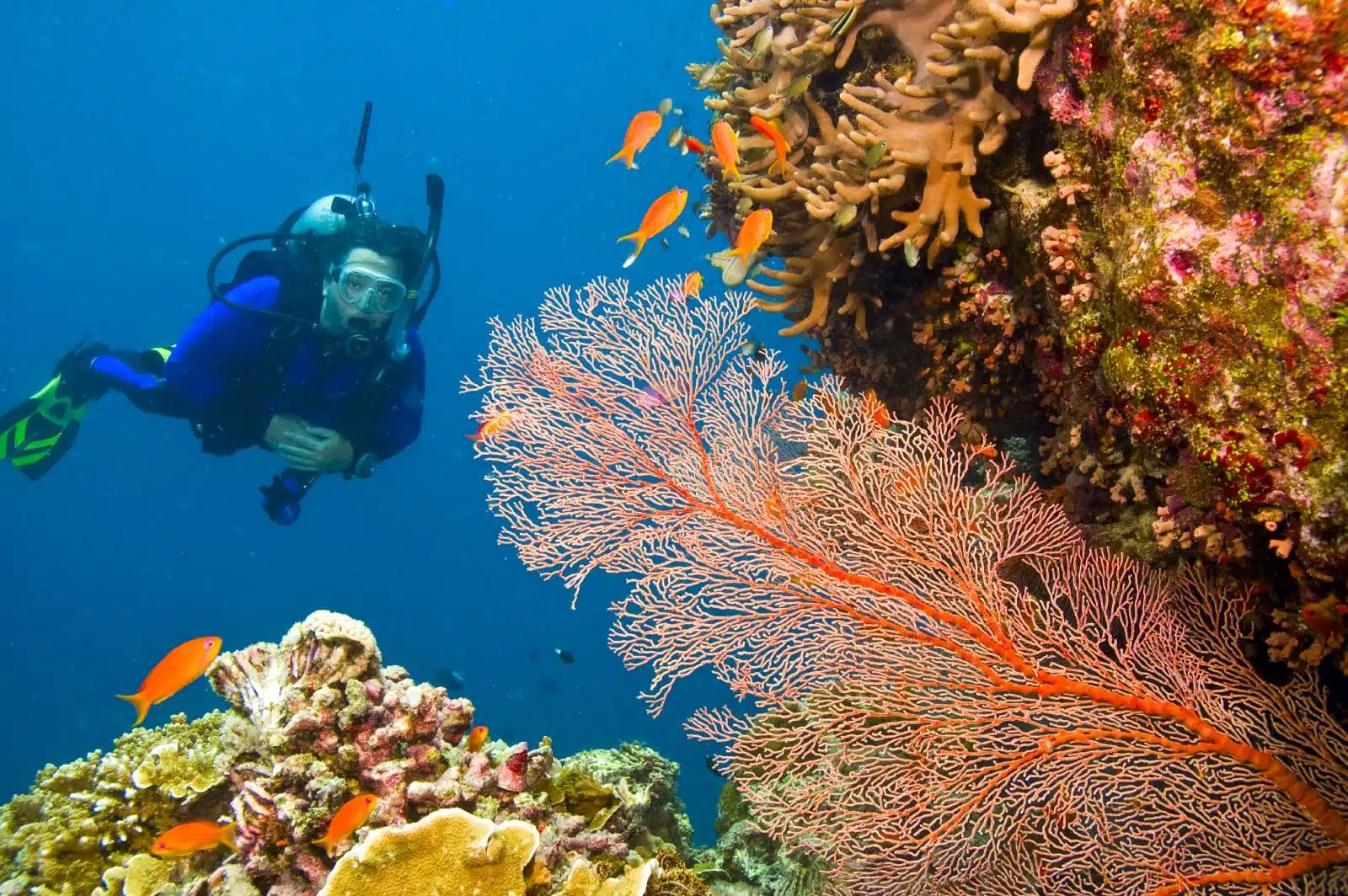
Image Credit: Shutterstock / Debra James
Citizen science projects offer snorkelers and divers the opportunity to contribute to marine research and conservation. By recording observations of marine life, coral health, and water conditions, recreational divers can provide valuable data that helps scientists monitor ecosystems and identify changes over time. Participation in these projects not only enhances the diving experience but also contributes to the broader effort to protect marine environments.
Insider’s Tip: Choose a citizen science project that matches your interests and level of expertise. Many organizations offer training and resources to help you get started, ensuring that your contributions are valuable and accurate.
7. Reducing Plastic Pollution
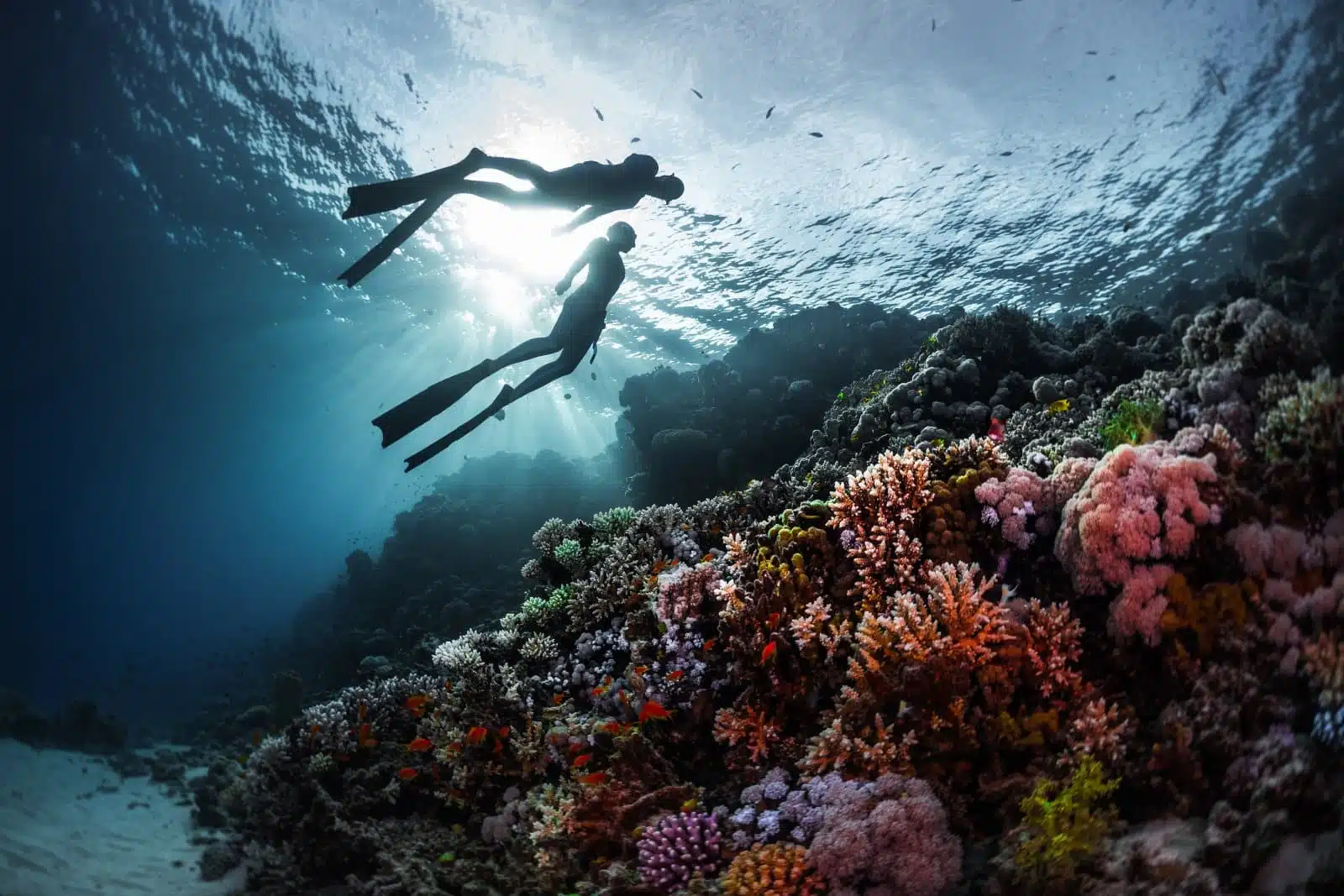
Image Credit: Shutterstock / Dudarev Mikhail
Plastic pollution is a pervasive threat to marine environments, entangling wildlife, and contaminating the water with microplastics. Responsible snorkelers and divers minimize their use of single-use plastics and ensure that they properly dispose of all waste. Participating in beach clean-ups and underwater trash collection dives are direct ways to combat plastic pollution and help protect marine life.
Insider’s Tip: Carry a mesh bag during dives to collect any trash you encounter. Small actions by many individuals can lead to significant improvements in the health of marine ecosystems.
8. Supporting Marine Protected Areas
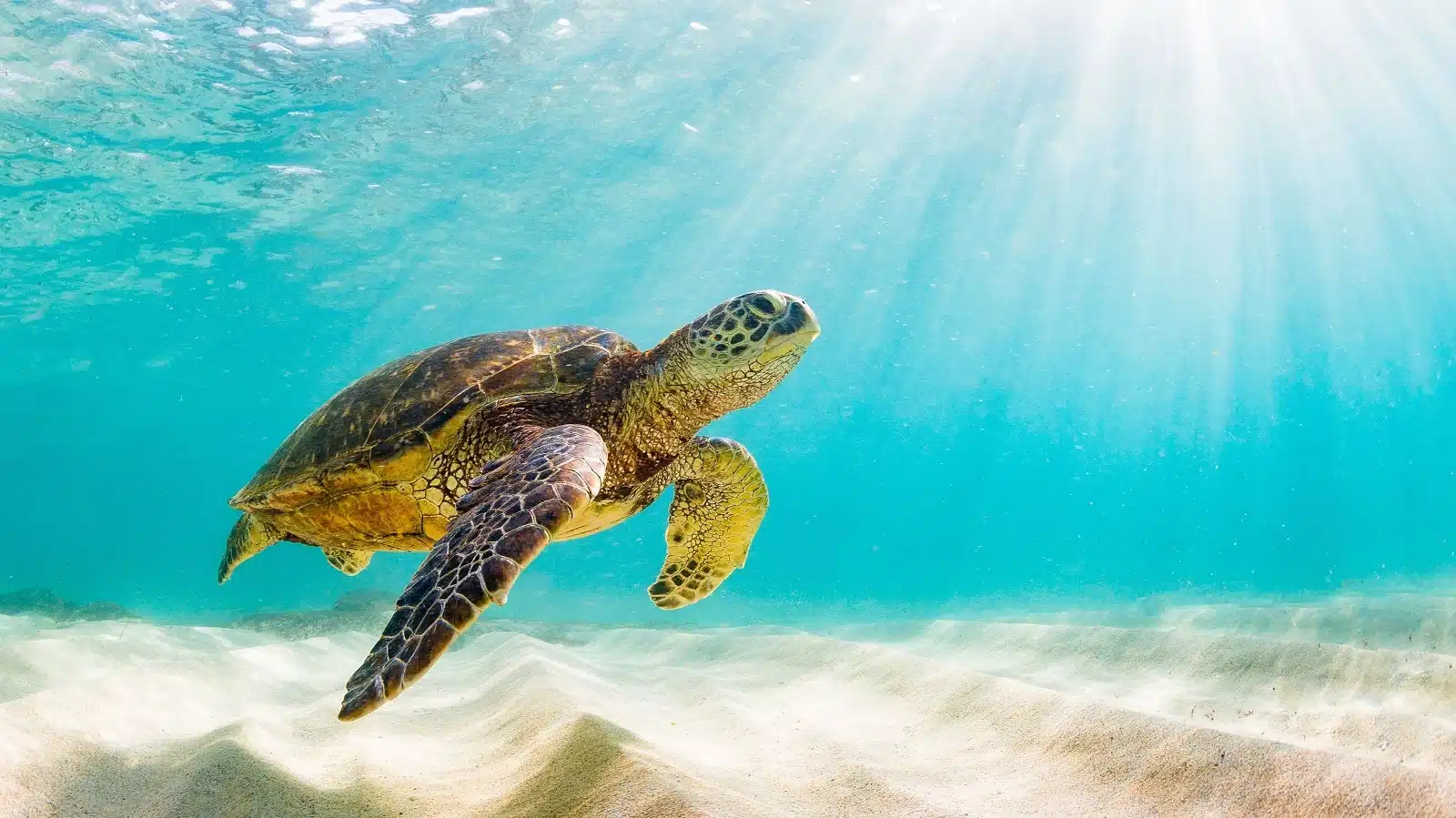
Image Credit: Shutterstock / Laverne Nash
Marine Protected Areas (MPAs) are critical for the conservation of biodiversity and the sustainable use of marine resources. These areas often have regulations in place to protect habitats and species, such as restrictions on fishing, boating, and diving activities. By visiting and supporting MPAs, snorkelers and divers contribute to the conservation efforts and the local economies that depend on eco-tourism.
Insider’s Tip: Learn about the regulations and guidelines for the MPA you plan to visit. Adhering to these rules is crucial for the effectiveness of conservation efforts and the sustainability of the area.
9. Educating Others
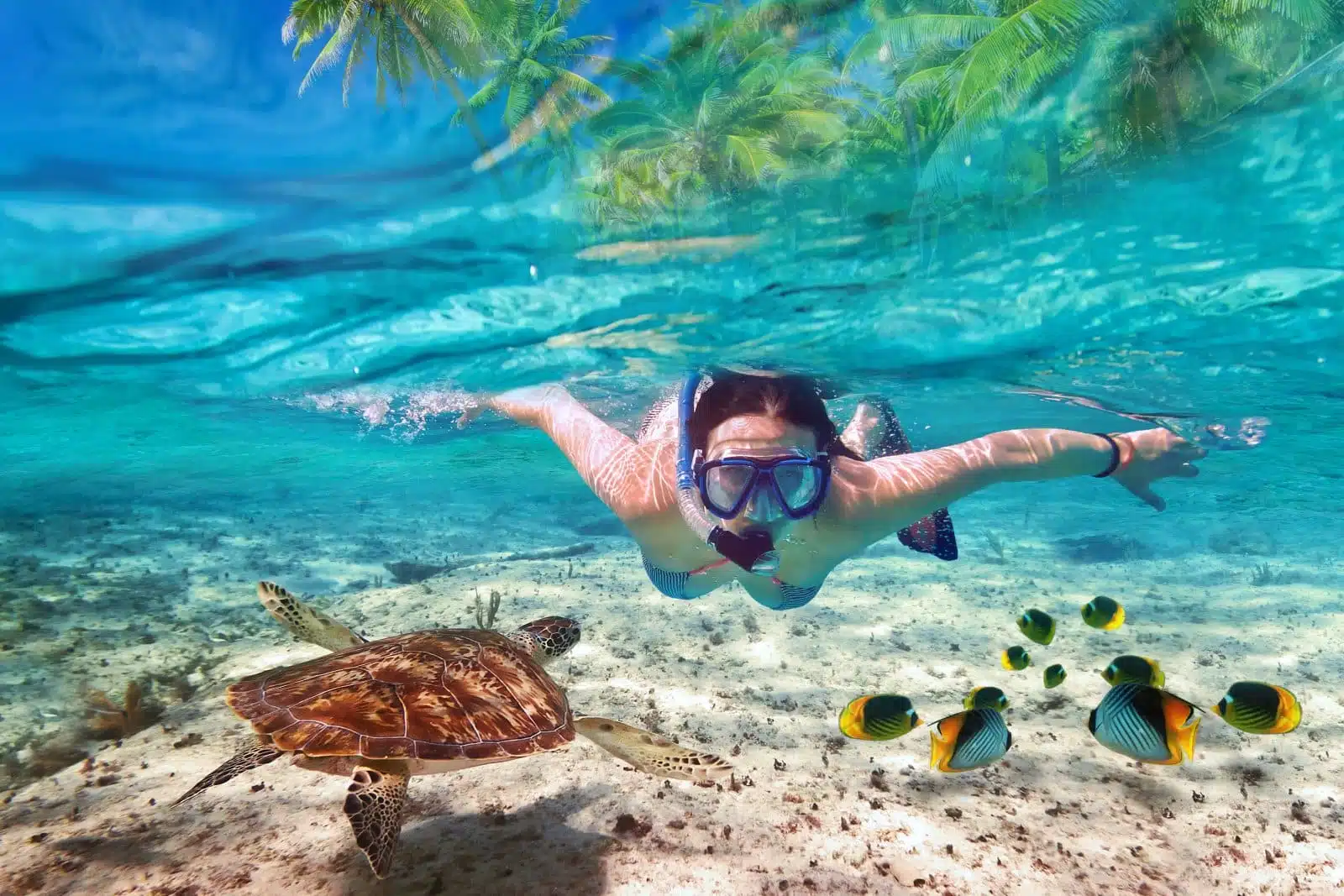
Image Credit: Shutterstock / Patryk Kosmider
Education is a powerful tool in the conservation of marine environments. Snorkelers and divers who are knowledgeable about the challenges facing marine ecosystems can share this information with others, spreading awareness and encouraging responsible practices. Whether through social media, community involvement, or casual conversations, educating others amplifies the impact of individual actions.
Insider’s Tip: Share your experiences and knowledge in a positive and engaging way. Inspiring others to care about marine conservation can lead to a collective effort towards protecting our oceans.
10. Advocating for Conservation Policies
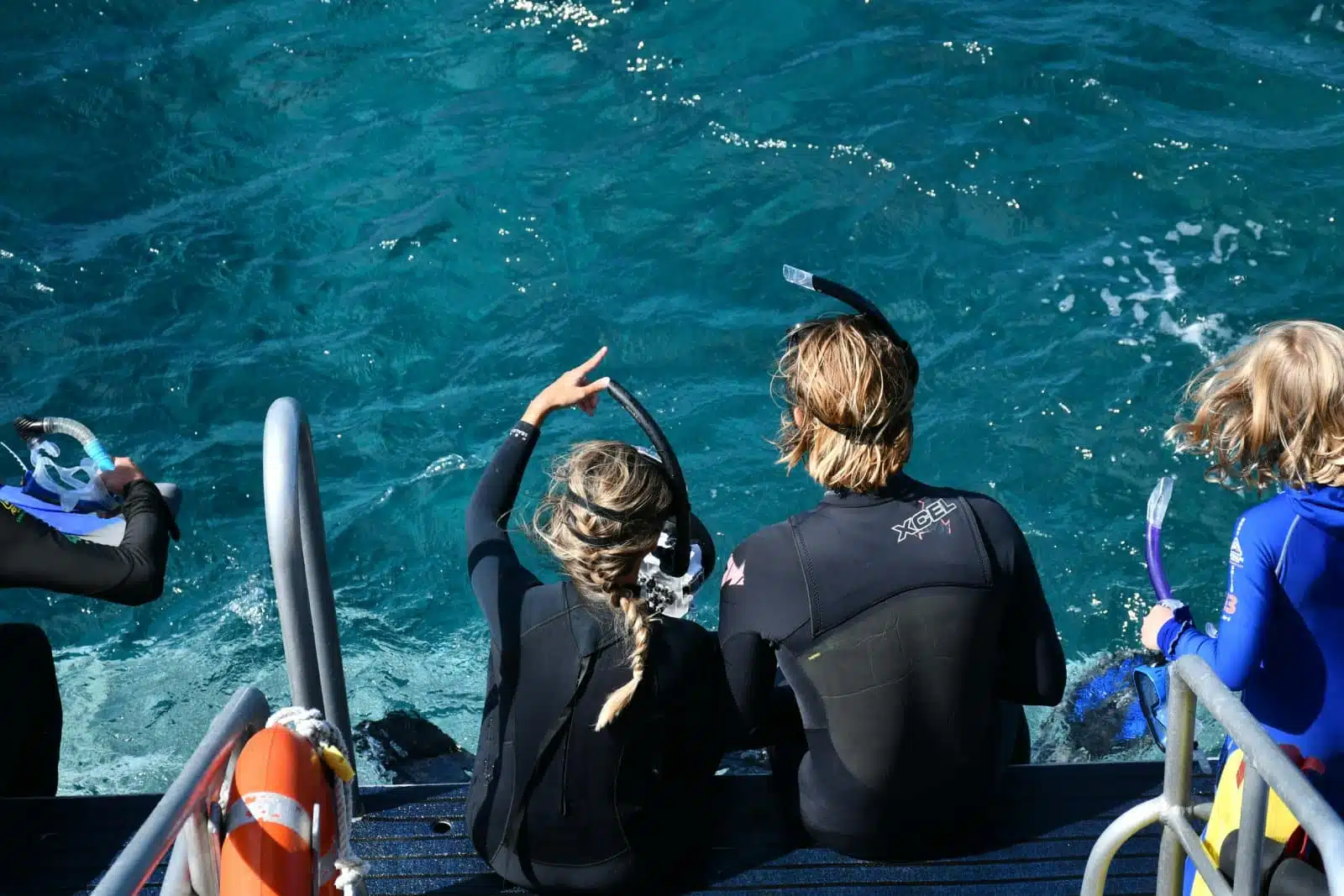
Image Credit: Pexels / Brian Crisp
Effective marine conservation often requires policy changes at the local, national, and international levels. Snorkelers and divers can use their voices to advocate for policies that protect marine environments, such as regulations on overfishing, marine pollution, and climate change. Supporting organizations that lobby for these changes amplifies the call for action and contributes to long-term conservation success.
Insider’s Tip: Stay informed about marine conservation issues and participate in public consultations, petitions, and campaigns. Your involvement can make a difference in the formulation of policies that protect marine life.
11. Choosing Sustainable Seafood
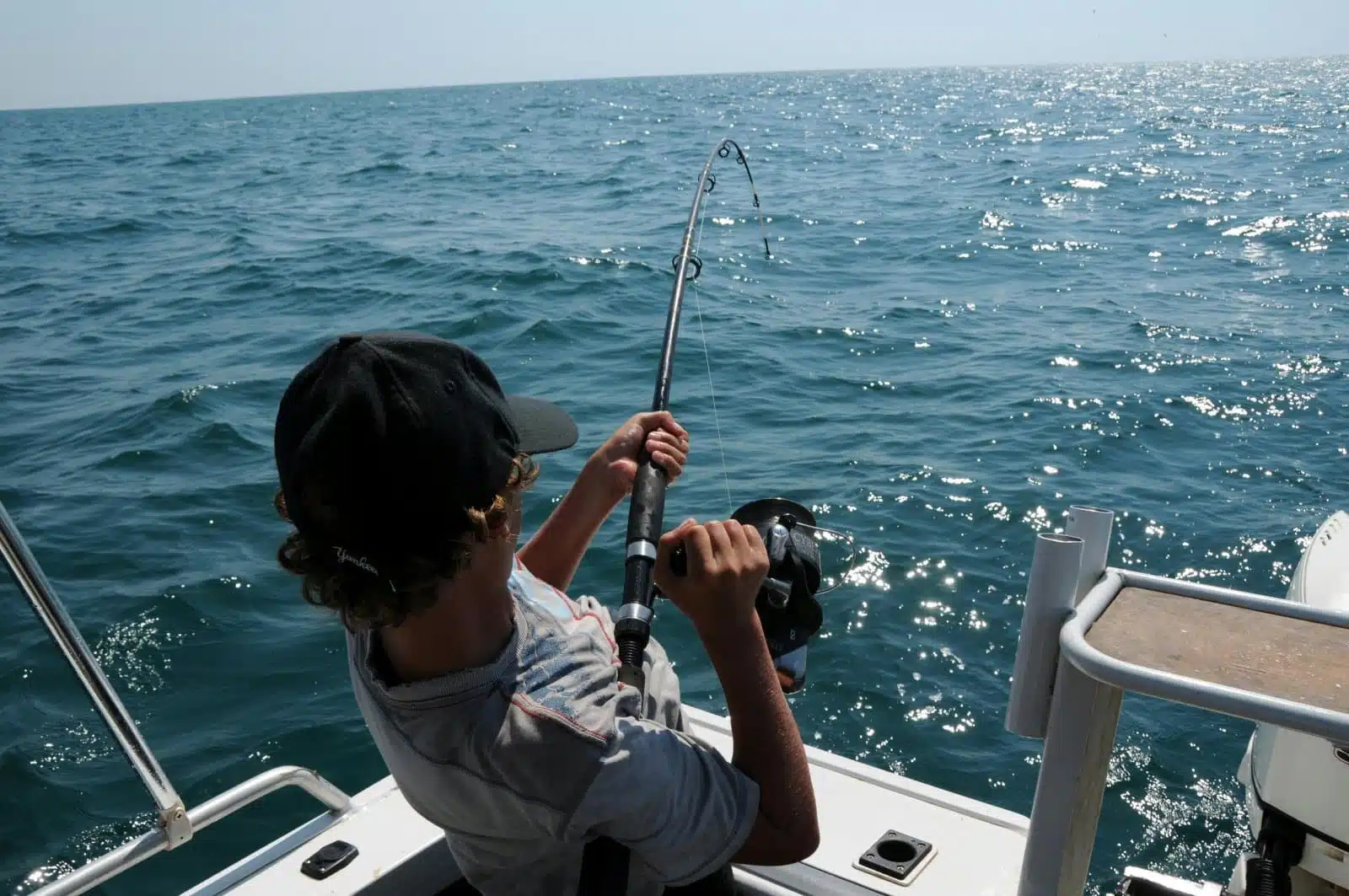
Image Credit: Pexels / William McAllister
The global demand for seafood has led to overfishing and degradation of marine habitats. Responsible consumption of seafood involves choosing species that are sustainably sourced and avoiding those that are overfished or caught using harmful methods. Snorkelers and divers, as ambassadors of the ocean, can lead by example, promoting sustainable seafood choices among peers and within their communities.
Insider’s Tip: Use seafood guides and apps to make informed choices when purchasing or ordering seafood. Look for certifications like the Marine Stewardship Council (MSC) label to ensure the sustainability of your seafood.
12. Continuous Learning and Improvement
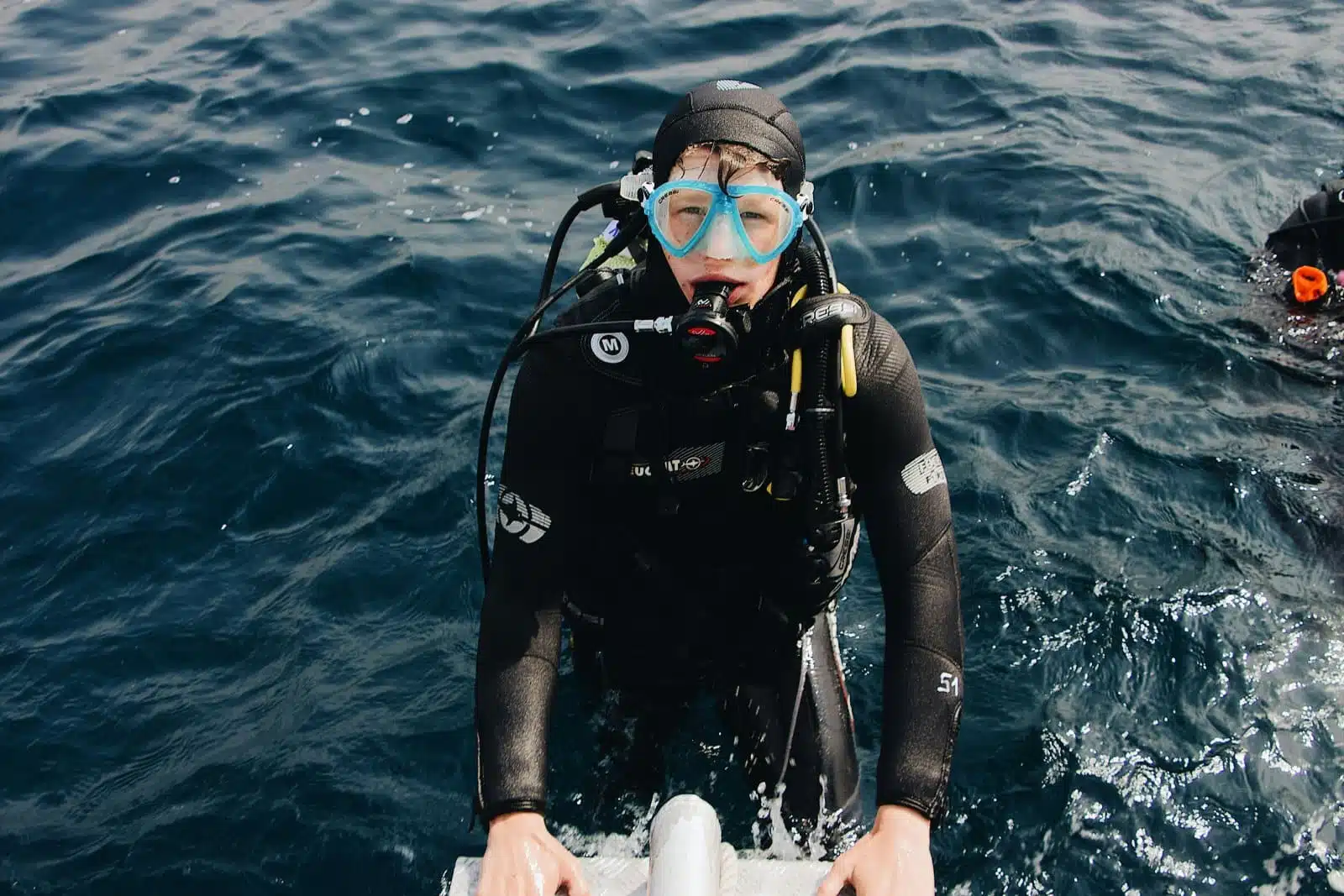
Image Credit: Pexels / Maël BALLAND
The field of marine conservation is constantly evolving, with new research and technologies offering insights into how best to protect marine ecosystems. Committed snorkelers and divers stay informed about the latest developments and are open to adapting their practices to minimize their impact on the underwater world. This commitment to continuous learning and improvement is essential for the long-term health of marine environments.
Insider’s Tip: Attend workshops, seminars, and conferences on marine conservation and diving practices. Engaging with the community and learning from experts can enhance your understanding and effectiveness as a conservation advocate.
The Bottom Line
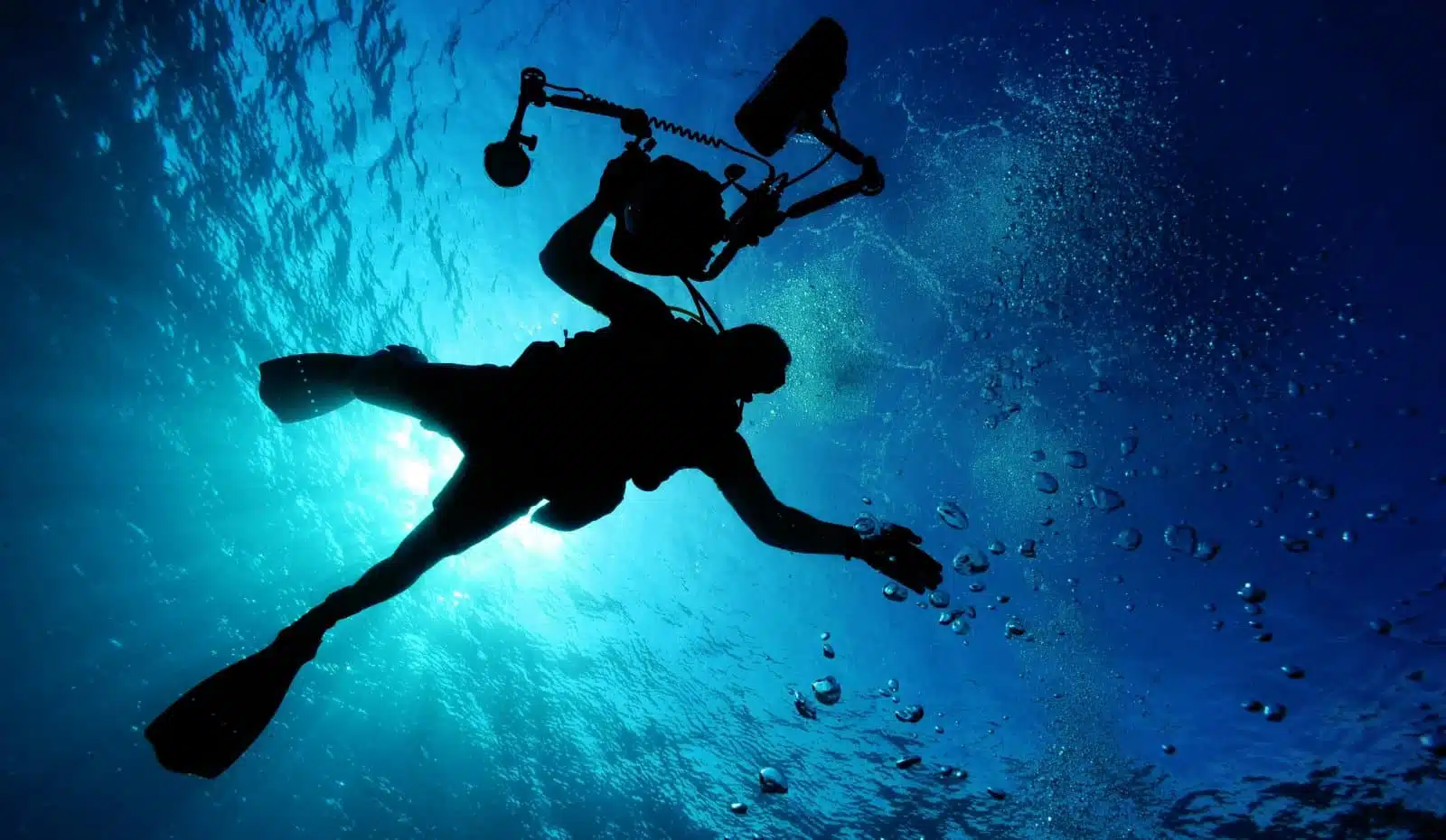
Image Credit: Pexels / Pixabay
As a snorkeler or diver, you have the privilege of exploring the underwater world and the responsibility to protect it. By adopting responsible practices and advocating for marine life conservation, you contribute to preserving these ecosystems for future generations. Your actions, both in and out of the water, can positively impact marine conservation efforts worldwide. Embrace this role with enthusiasm and commitment, and let your love for the ocean guide your journey toward responsible snorkeling and diving.
More From The Green Voyage
Top 10 Trending Travel Destinations 2024
6 Essential Banking Apps for International Travel – Managing Your Finances on the Go
Traveling With Kids – 10 Tips to Create Memorable Family Holidays
The post Responsible Snorkeling and Diving 2024 – Protecting Marine Life first appeared on The Green Voyage.
Featured Image Credit: Shutterstock / David MG.
For transparency, this content was partly developed with AI assistance and carefully curated by an experienced editor to be informative and ensure accuracy.
Tips for Trip Success
Book Your Flight
Find an inexpensive flight by using Kayak, a favorite of ours because it regularly returns less expensive flight options from a variety of airlines.
Book Your Hotel or Special Accommodation
We are big fans of Booking.com. We like their review system and photos. If we want to see more reviews and additional booking options, we go to Expedia.
You Need Travel Insurance!
Good travel insurance means having total peace of mind. Travel insurance protects you when your medical insurance often will not and better than what you get from your credit card. It will provide comprehensive coverage should you need medical treatment or return to the United States, compensation for trip interruption, baggage loss, and other situations.Find the Perfect Insurance Plan for Your Trip
